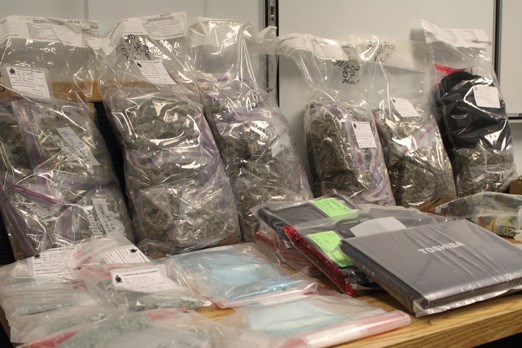Thunder Bay’s drug strategy co-ordinator says the federal government’s plan to implement mandatory minimum sentences for drug offences is frightening.
The Safe Streets and Communities Act, part of a nine-bill omnibus piece of legislation laid out by the Conservatives, would introduce mandatory minimum sentences for child sex offences and drug trafficking.
Drug strategy co-ordinator Patty Hajdu said the bill would target Thunder Bay’s most vulnerable populations, such as the poor, the young and Aboriginal.
Haju said all evidence points to the fact that increasing incarceration doesn’t help substance issues or crime and in many cases can make it work.
She points to recent criticisms on Bill C-10 from the Canadian Bar Association to prominent Repbulicans in Texas who have said the bill won’t work.
“You can do a lot more when you can prevent people from having addictions problems to begin with,” Hajdu said.
“We are very concerned with the concept of mandatory minimums.”
But mandatory minimum sentences isn’t the only concern. Another issue is that the bill will take away the discretionary power from judges.
Each case should be dealt with individually. That won’t happen with mandatory minimums, Hajdu said. And once a person with substance issues is in prison, their ability to recover falls dramatically while their involvement in criminal activity can get worse.
“You may as well have a computer doing the job,” Hajdu said. “Ideally we’d like to keep as many people out of the prison system as possible…it’s incredibly frustrating and incredibly scary.”
“It’s incredibly frustrating and incredibly scary for those of us working in the field because when you have a government that won’t listen to evidence and is operating from their own sense of morality or maybe there’s another motive it’s very, very frustrating.”
But MP Greg Rickford (Con., Kenora), a lawyer himself, said the government is not about to take away powers from judges.
From his perspective, the intent of the bill has been distorted and the message has been lost. The bill has specific exemptions for people with addictions issues who would instead go to drug courts, something that has been operating across Canada and isn’t going to change.
“We’re taking a balanced approach to specifically target criminal enterprises around drug trafficking while still providing treatment options for those who are addicted to drugs,” Rickford said.
Hajdu said judges and prosecutors rarely see high-level traffickers in court.
Instead, it’s the poor and addicted who wind up behind bars. And they don’t need jail time, they need help.
“Substance trafficking is so connected to poverty that if we don’t talk about it as a social phenomenon we kind of lose perspective,” Hajdu said.
“People talk about the big bad drug evil drug dealer but it’s more about elderly people selling their prescription drugs to survive on senior citizens allowance or single mothers agreeing to courier opiates because they’re broke and addicted and need the money.
“Those are the people who get caught.”
MP John Rafferty (NDP, Thunder Bay-Rainy River) shares Hajdu’s concerns.
The Official Opposition member believes putting more people in prisons will cost the country socially and economically.
“I heard a quote the other day that said ‘building more prisons to fight crime is like building more graveyards to fight cancer’,” Rafferty said. “It’s more populist than scientific. It defies logic.”
Opposition parties have been trying to get the government to split its omnibus bill up and take the time needed to consult and discuss it.
But with a house, senate and committee majority, the Conservatives have chosen to fast-track the legislation.
“This bill defeats that real reason for us being there,” Rafferty said.
“They have time. It’s not a minority situation.”
Rickford said his government has had clear and fair consultation. Canadians have said this is what they want.
Stiffening penalties for child pornography, increasing penalties for organized drug crime activity ending house arrests for the most serious of crimes, protecting the public from violent young offenders and eliminating pardons for serious crimes are just a few of the things this bill will do Rickford said.
Plus it will help victims of crimes, who along with children are the most vulnerable.
”I think that the story line has been distorted to conveniently fit the talking points of people like John Rafferty,” Rickford said.
